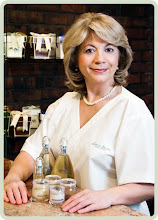1. True or false?
Today’s scientifically advanced eye creams can banish bags and dark circles instantly—without surgery or Botox.
False: Product claims like these rake in millions from hopeful skincare consumers. And you don’t have to be naïve to fall for the lure of a new scientific discovery (or ancient beauty secret) that promises to change the face of anti-aging skincare forever. After all, a product breakthrough like that could happen. And maybe someday it will. But at this point, the secret formula that magically erases dark circles, crows-feet, and droopy skin is still just a hopeful gleam in the eye of beauty scientists.
2. Does that mean raccoon eyes and wrinkles are forever?
No. And eyelifts, Botox, and laser surgery are not your only options. Several noninvasive skin treatments can significantly refresh and revitalize the eye area. The precise degree of improvement you can achieve depends a variety of factors, including the causes of your symptoms and your commitment to eliminating the major culprits.
3. Which of the following factors can cause the development of dark circles, puffiness, and wrinkles around your eyes?
(a) Heredity
(b) Allergies
(c) Rubbing your eyes
(d) Aging and environmental damage
(e) Lack of sleep
(f) Dehydration
(g) Smoking
(h) Eczema
(i) Anemia, kidney disease, or other serious health condition
(j) All of the above.
(j) All of the above. The first 7 items on the list are the most likely
causes of thinning, damaged skin and areas of dark pigmentation under the eyes. Individuals born with fair, delicate complexions are naturally more prone to under-eye rings and signs of premature aging. But inheriting these genetic tendencies doesn’t automatically doom you to looking perpetually tired and old before your time. The safest least-invasive approach is a three-pronged action plan: (1) Use a high-SPF sun block daily (2) practice healthy lifestyle habits and (3) adopt a gentle, effective skincare regimen. (A good under-eye concealer also helps.) If your symptoms are allergy-related, try an over-the-counter anti-histamine. In rare cases, persistent dark circles may signal anemia, a clotting disorder, or another serious illness. If you’re also suffering from fatigue, unexplained bruising, or other worrisome symptoms, consult your physician.
4. The safest and most effective eye creams contain the following ingredients:
(a) Vitamin A derivatives
(b) Caffeine
(c) Niacinamide (vitamin B3)
(d) Botanical oils and humectants
(e) Vitamin K
(f) All of the above
(f) All of the above. Like vitamin K and caffeine,
niacinamide has demonstrated beneficial effects on under-eye discoloration and a variety of other age-related skin problems in numerous medical studies. Vitamin A derivatives such as retinyl palmitate and the powerful antioxidants in natural plant-based complexion care also play an essential role in restoring the strength and resilience of maturing skin. Together with the superior emollient properties and moisture-binding capacity of plant-derived oils and humectants, these valuable nutrients comprise a balanced diet for ailing, exhausted skin. Good natural sources of these ingredients include the following:
• Green and white teas
• Squalene
• Jojoba oil
• Sea buckthorn
• Shea butter
• Pearl powder
• Aloe vera
• Hyaluronic acid
Remember, complicated, long-term problems can’t be reversed in an instant. But gradual meaningful change is a truly rewarding alternative to the false promise of overnight miracles.
Image: renjith krishnan / FreeDigitalPhotos.net
Image: Carlos Porto / FreeDigitalPhotos.net
Labels: eye creams; dark circles; crow's-feet; puffy eyes; under-eye treatments






